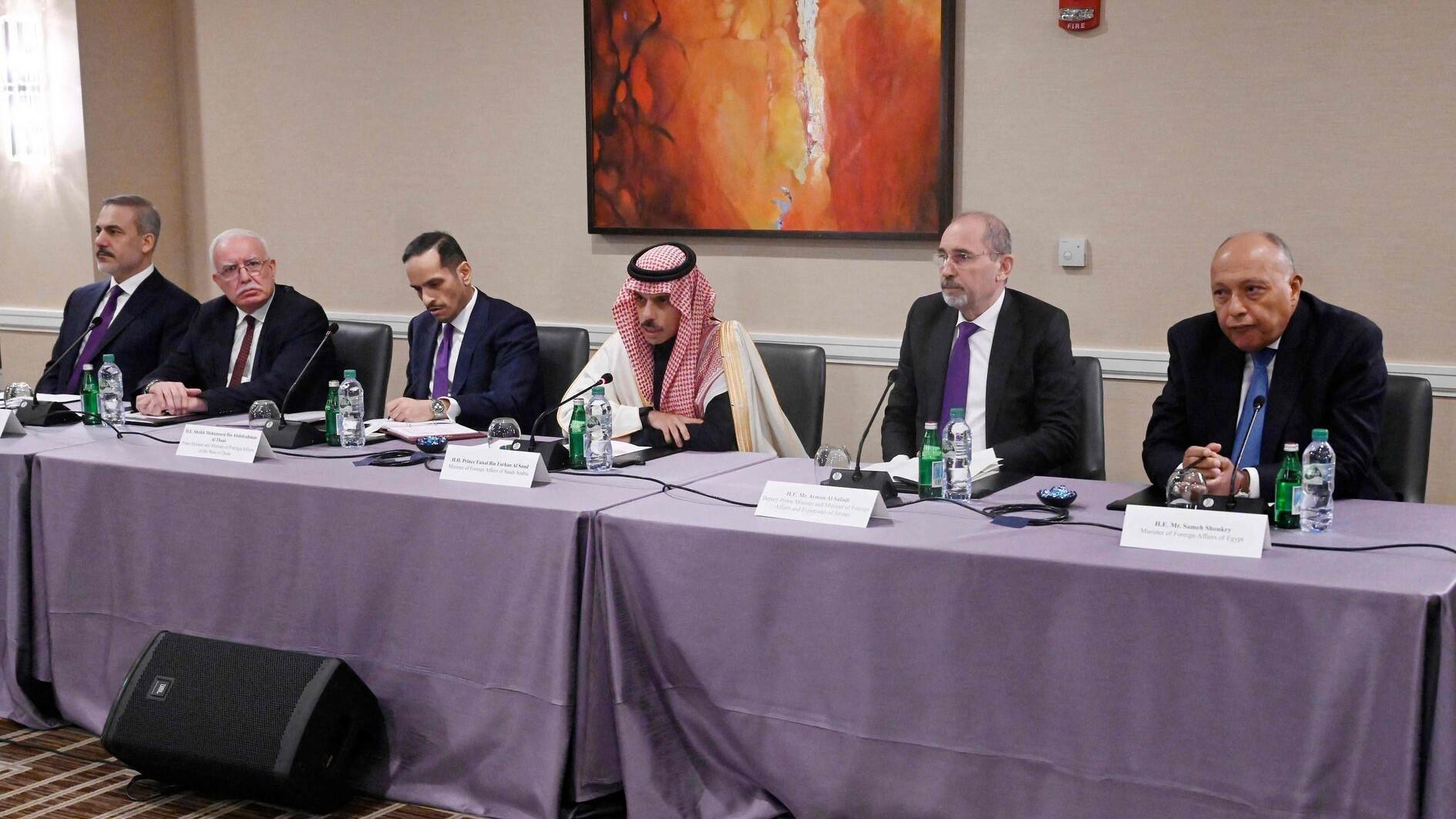
The foreign ministers of the Contact Group called on Nordic countries and Benelux states to be more critical against Israel as part of their efforts for an immediate ceasefire between Israel and Gaza.
Foreign Minister Hakan Fidan, Palestinian Foreign Minister Riyad al-Maliki, Qatari Foreign Minister Jassim al Thani, Jordanian Foreign Minister Ayman Safadi and secretary-general of the Organization of the Islamic Cooperation Hussein Brahim Taha paid a visit to Norway for talks with their counterparts from Nordic and Benelux countries on Dec. 15.
They met the foreign ministers of Belgium, Denmark, Netherlands, Sweden, Iceland, Luxembourg, Norway and state secretary of Finland’s foreign ministry. The Contact Group asked their counterpart to be more vocal against the continued massacres by the Israeli security forces and act for achieving a lasting ceasefire.
The meetings were particularly important as the Scandinavian countries traditionally provide the most humanitarian aid to regions affected by crises. With Benelux countries, they are also very influential on international law and international humanitarian law.
It will also be important to observe that more countries within the European Union support Palestine and increase their criticisms against the humanitarian tragedy, according to sources.
Denmark, Finland and Sweden, which have not backed Palestine in an October vote at the U.N. General Assembly, have changed their position and voted in favor of ceasefire on Dec. 12 vote at the U.N. General Assembly. Netherlands, however, abstained in the same vote and it is believed that talks with Netherlands will be important to force the country for a change in its stance.
According to sources, the talks were useful also because these countries, which host a great number of Muslims, observe a rise in the anti-Islam attacks. The Contact Group renewed their messages for the need of co-existence of different religious and ethnic groups while exchanging views on the fight against extremists.
Sources valued the fact that these countries sought to engage in dialogue with the Contact Group as an indication of an increase of the sensitivity in the Western European public opinions towards the massacres Palestinians are suffering.
“The Contact Group is no longer speaking only on behalf of the OIC and the Arab League. It conveys a message by most of the international community and brings it in front of the world leaders in the most open way,” sources stressed.
The Contact Group was established at a joint summit of the OIC and the Arab League in Saudi Arabia in November upon Türkiye’s demand after Israel’s indiscriminate attacks against the civilians in Gaza that killed more than 17,000 people, mostly women and children.
The group has already had talks with five permanent members of the U.N. Security Council and other prominent countries in the past weeks. They were also active at the U.N. for increasing the number of countries voting against the continued attacks by the Israeli security forces in Gaza.